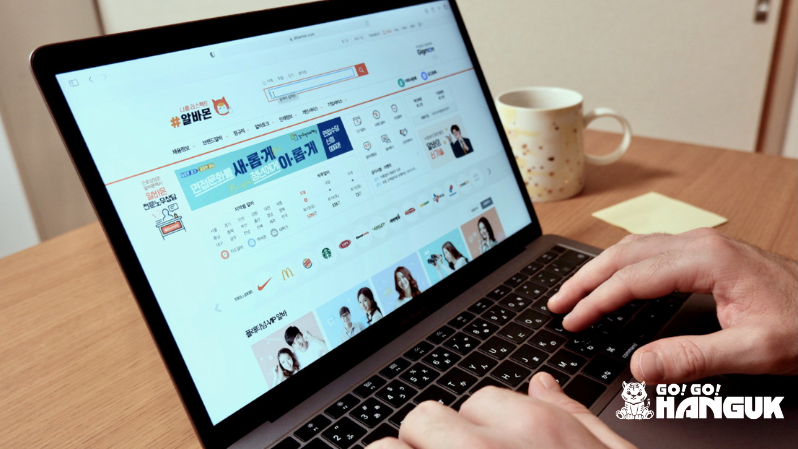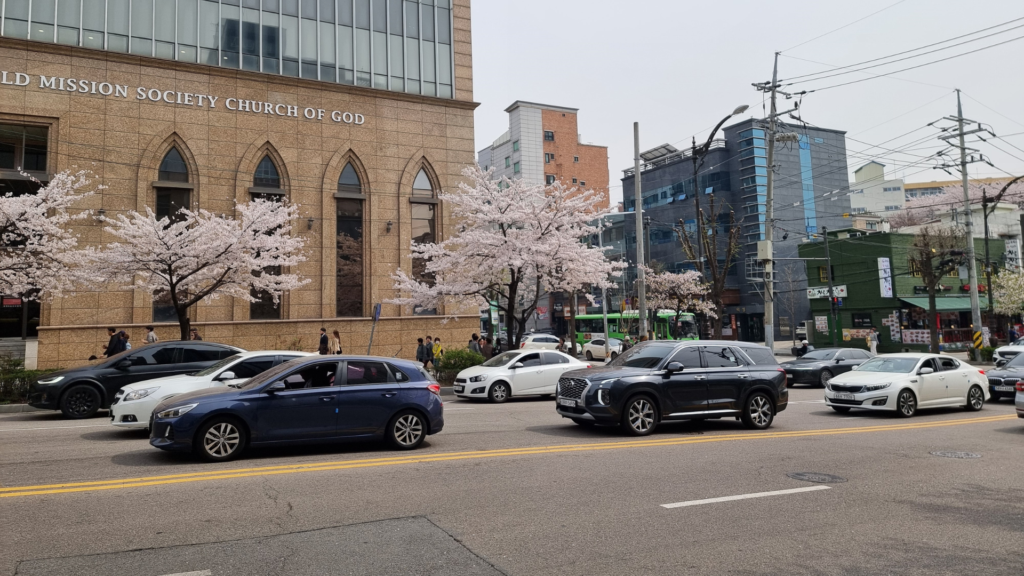Last updated on April 2025.
Life as an out-of-town student is never easy. You often face financial difficulties, especially if you live abroad. But Korea will help you relieve the financial burden. If you are studying Korean with a D-4 visa, or if you are actually enrolled in university with a D-2 visa, you will have the opportunity to work part-time in Korea. Let’s learn more!

When can you work part-time in Korea?
If you come with the intention of studying Korean, you can work part-time in Korea after the first 6 months. This period is mainly to let you adapt to the new lifestyle in a new country and to get your language level up so that you can handle everyday conversations.
There are a few things to be aware of. First, if you want to work part-time in Korea, you’ll need a work permit. The permit for part-time work in Korea is issued by your local immigration office. To obtain this permit, your class attendance plays a huge factor in receiving permission. We advise you to be diligent in attending your classes.
For Korean language students (if you have at least TOPIK I level 2), you can work part-time in Korea up to 25 hours a week during the school term, as long as it doesn’t clash with your class schedule or affect your studies. Just be careful not to exceed that limit too much. When you’re on a break between terms, there are no restrictions on working hours.
Once the 6 months have passed, you can go to your school’s office. They will provide you the relevant information regarding documents you will need to obtain to work part-time in Korea. Don’t worry, it’s easier than it looks!

Where to look to work part-time in Korea
Before you start looking for a part-time job, it’s important to know which industries or roles are allowed — and which ones aren’t. Take a look below for the key details and guidelines!
Permitted fields:
- Interpretation, translation, restaurant, office, convenience stores
- Tourism and services such as duty-free shop sales support, tour guide assistance
Restricted fields:
- Delivery riders, package couriers, door-to-door sales
- Teaching languages (you need a proper work visa for teaching jobs in Korea)
What are the easiest ways to find a job?
Basically, there are two ways. The first is to go in person to the place where you want to work. Very often foreigners with this type of visa work in restaurants or coffee shops.
You can either look for places with advertisements, or if you are brave enough, go to any business and ask if they are looking for someone to work part-time for them. There’s always a possibility that they are hiring part timers, so it doesn’t hurt to go and ask.
The other way to work part-time in Korea is to download two apps, respectively 알바몬 (Albamon) or 알바천국 (Albachonkuk). You’ll find lots of ads there, maybe even one that suits you. Read also our article on how to find part-time work in Korea.
The only downside is that basic Korean is not enough to be able to navigate these two applications well. You will need a little more proficiency in the language to use those apps. On the positive side, if you are afraid of meeting the employer, you can use these apps to contact the managers of the venue directly without going there in person, by message or phone call.

Advantages and disadvantages to work part-time in Korea
Like any country, working part-time as a student in Korea has both its advantages and disadvantages.
One of the advantages is that you will be able to put your language skills into practice as you work part-time in Korea. You will have to communicate with native speakers, listen to their requests or anything else related to the job you are doing.
You will be more financially independent, so you will not have to bother your parents too much. Also, when you want to indulge in a few extra treats, such as going out with friends or a trip out of town, you will be able to do so without too much thought. Just so you know — in 2025, the minimum hourly wage in South Korea is KRW 10,030 for both full-time and part-time workers.
If you have any kind of part-time job, you often find yourself prioritizing your part time job more. One of the disadvantages is that you will not be able to devote all your time to your studies. Please note that if you go to Korea on a D-4 visa, your priority is study and attend class. Be careful not to neglect your studies. If you want to focus more on work experience and less on studying, the best decision is to go to South Korea on a working holiday visa.
Finally, it is evident that the city also influences how easy it is to find a job. If you are in Seoul, it will probably be easier, but it is also true that the living costs there are more expensive. If you are in Busan, Daegu, it is still possible to find a job, but it is generally more challenging to secure one. In the latter case, given the lower costs of living in these other cities, you may have more money to support yourself.
The important thing is not to give up! I recommend you to ask some friends, or go to the school office to ask. You will see that you too will be able to get 100% into the hectic Korean life between study and work!
For more useful tips on living in Korea, keep following the Go! Go! Hanguk blog. Also, don’t hesitate to contact us about living and studying in Korea.















